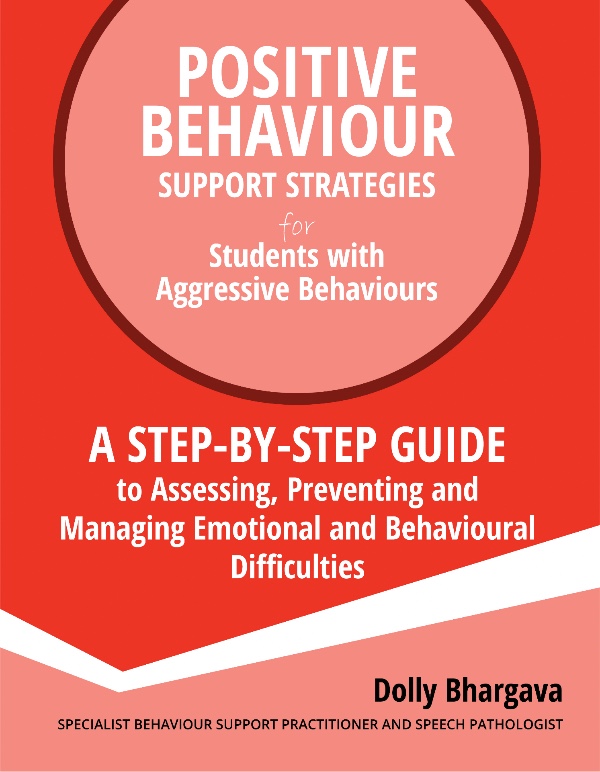Aggressive Behaviour Online Course
This online training course is aimed at teachers, health professionals and parents who wish to manage aggressive behaviours and learn the essential skills to effectively handle this difficult behaviour.
The course will arm you with the knowledge needed to help you manage aggression by spotting early warning signs and being prepared with de-escalation strategies.
What are Challenging behaviours?
Challenging behaviours are actions that interfere with learning, relationships, and participation in daily activities. In the context of aggression, these may include verbal outbursts, physical violence, property damage, or intimidation. Such behaviours are often a way for the individual to express unmet needs, frustration, or distress when other communication skills are limited.
Aggressive or violent behaviour is not simply “bad behaviour” it is a form of communication that signals underlying issues such as anxiety, trauma, sensory overload, unmet emotional needs, or difficulties with impulse control. Recognising this helps shift our focus from punishment to understanding and support.
Through the PBS framework, we learn to ask “What is this behaviour trying to tell me?” rather than “How do I stop it?” By identifying the function of the behaviour, we can design proactive strategies that prevent escalation and promote skill development.
What Causes Aggressive and Violent Behaviour?
Aggressive behaviour rarely has a single cause. It is typically the result of a combination of biological, psychological, social, and environmental factors, including:
-
Biological influences: neurodevelopmental conditions such as ADHD or Autism Spectrum Disorder, mental health difficulties, sensory sensitivities, or medical conditions that affect mood and regulation.
-
Psychological influences: past trauma, poor emotional regulation, low self-esteem, or difficulty interpreting social cues.
-
Social and environmental influences: inconsistent boundaries, negative peer interactions, stressful home or school environments, or lack of structure and predictability.
Mental health also plays a key role. Anxiety, depression, or experiences of rejection and bullying can heighten emotional responses, leading to reactive or defensive aggression. Understanding these root causes helps us design interventions that address the why behind the behaviour — not just the surface actions.
PBS encourages us to view aggression through a compassionate lens, focusing on prevention, teaching alternative skills, and creating safe, supportive environments.
Physical Intervention and Ethical Considerations
In rare circumstances, physical intervention may be required to prevent harm to the individual or others. However, such measures must always be a last resort, guided by strict ethical and legal frameworks.
Legal and Ethical Considerations
Professionals and caregivers have a duty of care to maintain safety while upholding the rights and dignity of the individual. Physical interventions must:
-
Be used only when there is an immediate risk of harm.
-
Be proportionate, necessary, and reasonable.
-
Stop as soon as the danger has passed.
-
Be clearly documented and reviewed afterwards to prevent recurrence.
Personal Safety
Maintaining personal safety involves recognising the early signs of escalation and knowing when to seek support. Training in situational awareness, calm body language, and safe exit strategies helps minimise risk to everyone involved.
Conflict Management
Verbal de-escalation, active listening, and maintaining a calm, non-threatening tone are crucial tools. Building rapport, showing empathy, and acknowledging feelings can often defuse conflict before it turns physical.
Physical Intervention Techniques
When absolutely necessary, interventions should follow accredited, evidence-based approaches that prioritise safety and minimise restriction. All staff involved should receive ongoing training and supervision to ensure interventions remain ethical, consistent, and respectful.
PBS always emphasises prevention, early intervention, and skill-building — physical intervention should only ever be part of a wider, carefully planned support strategy.
De Escalate and De Risk
Effective de-escalation focuses on reducing tension, restoring calm, and preventing further risk. The following strategies are applicable across education, workplace, and care settings.
In Education
Teachers and support staff play a key role in creating emotionally safe classrooms. Strategies include:
-
Recognising early warning signs (e.g., restlessness, withdrawal, increased noise).
-
Offering calm spaces or sensory breaks.
-
Using predictable routines and visual supports.
-
Employing restorative conversations after incidents to rebuild trust and understanding.
In the Workplace
For staff working in health, education, or social care, de-escalation involves maintaining professional boundaries while showing empathy. Training in communication styles, team coordination, and post-incident reflection helps create a culture of safety and learning rather than blame.
Training and Prevention
Ongoing professional development ensures that individuals and teams are confident and consistent in their approach. Regular scenario-based training in PBS, conflict resolution, and self-regulation strategies helps staff remain calm and effective in high-stress situations.
De-risking also involves reviewing environments and systems — from classroom layouts to staffing levels — to minimise triggers and create spaces where aggressive behaviour is less likely to occur.


